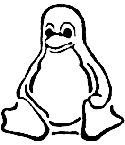|
The Applied Linux Institute Project (version 0.1.5)
During the last months when working with the idea of The Applied Linux Institute we have found in Finland several small scale efforts promoting "free software ideology", "open source solutions", "copyleft licencies", Linux and OpenOffice training and so on. These efforts are carried out by different universities, NGOs, ministries, cities, enterprises and private citizens. The Finnish Linux-landscape is fragmented. When we are using the phrase "Linux" loosely, it may mean the software itself, the community around the devolopment and the use of all kinds of FLOSS software, the special licencing policy, the public domain or the business model based not on products but services. "Linux" means nowadays more than just an operating system. It is a way of production and distribution, an "odd" phenomenon in the field of copyright and intellectual property legislation, a tool for community buildind and for bridging the digital divide. On the world scale there is going on a significant shift from proprietary software systems to free ones. This transition is now starting to expand into developing countries. The reasons for the changes originate from different sources: the tightening of international intellectual property and patent legislation, the monopolistic price control of proprietary software gigant(s), the maturing of FLOSS solutions and the proliferation of the Internet. The diffusion of FLOSS solutions is by nature decentralized. When for example public admistration - universities, schools, cities, ministeries - are starting to use free software, the lack of supportive systems in native languages and insufficient interaction may form bottlenecks. When FLOSS solutions meet the society in Finland and elsewhere at large, and when the open source way of thinking, acting and producing spreads out from the software production itself to other lines of activities, there is a need for research, training, experiments and world wide interaction. To help to connect existing initiatives and activities the Applied Linux Institute Project (ALI - version 0.1.5) could be helpfull. The following institutions have expressed their interest in a joint effort :
The structure of ALI consists of three different sections:
Some ideas are under development:
On behalf of the Applied Linux Institute Project : 21.5.2003 Aulis Pitkälä, Director of Culture and Education, City of Vantaa Helena Karento, Director, University of Helsinki, Vantaa Institution for Continuing Education, Leif Åberg, Head of Department of Communication, University of Helsinki Seppo Koskela, Project Coordinator, Department of Communication, University of Helsinki Sinikka Sassi, Professor, Department of Communication, University of Helsinki More information: seppo dot koskela at helsinki dot fi
|
||||
 |
||||